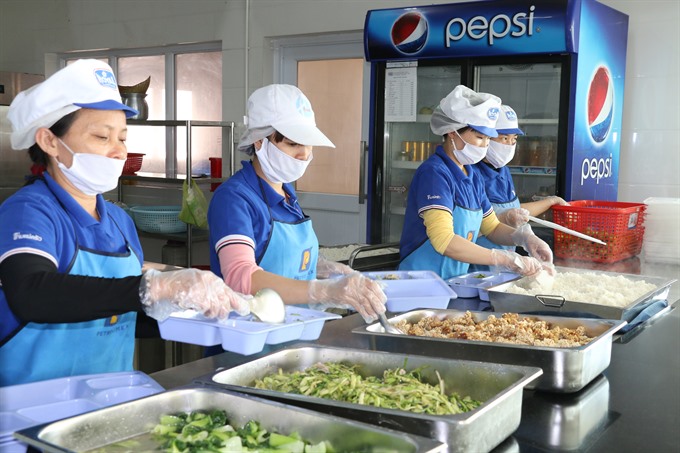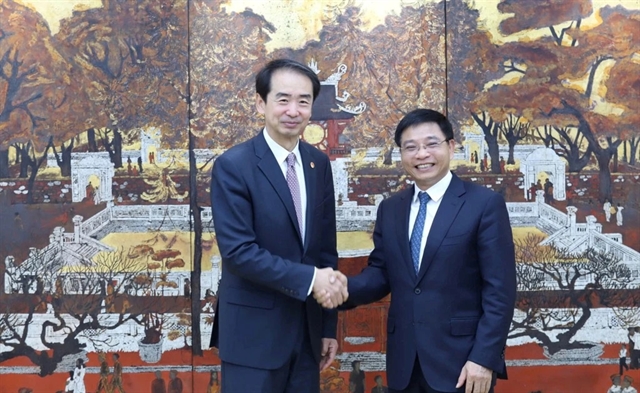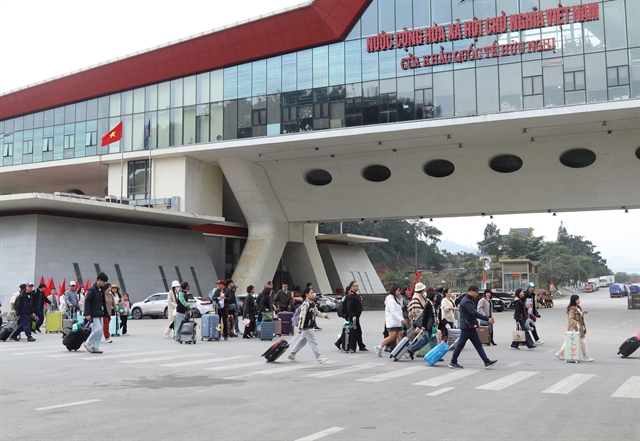

It has become important for companies to give their workers meals at work.
Ever since last year, workplaces have had to make sure that the meals they offer are good.
 |
| Lunch for workers prepared at Royal Foods Co. Ltd, Nam Cấm Industrial Zone, Nghệ An Province. – VNA/VNS Photo Bích Huệ |
It has become important for companies to give their workers meals at work.
Ever since last year, workplaces have had to make sure that the meals they offer are good.
Companies would be in serious trouble if meals they supplied caused people to get food poisoning.
Some workers prefer to receive money for food rather than meals.
HÀ NỘI —The Việt Nam General Confederation of Labour (VGCL) has helped improve the quality of meals for workers as it makes the issue part of the collective bargaining between employers and employees.
In February, 2016, VGCL adopted resolution 07C/NQ-BCH which says during collective bargaining, trade unions in companies or districts must ask employers to improve meals for workers, ensuring that each costs at least VNĐ15,000 (US66 cents).
Trade unions will also sue directors of companies if workers are seriously affected by food poisoning.
The resolution is aimed to tackle poor quality meals and poor quality food and processing conditions that lead to food poisoning.
Lao động (Labour) newspaper early this week reported that about 27,000 companies nationwide provided meals for workers, accounting for nearly 60 per cent of companies with established trade unions.
In about 19,500 companies, workers are provided meals worth at least VNĐ15,000 each.
Last year, nearly 1,200 collective bargaining deals were made that helped increase funding for workers’ meals.
Nguyễn Ngọc Mai, a worker at Long Biên Investment Joint Stocks Company in Hà Nội, said that the meals it provided its workers costs VNĐ30,000 and included rice, meat, soup, fruit - and yogurt or cake for dessert.
“The dishes are frequently changed. The meals make me full. They are delicious,” Mai said, adding that meals were part of the collective agreement between employer and employees.
Last year, Toyota Ltd Company in Nomurra Industrial Zone in Hải Phòng increased funding for meals to VNĐ20,000 from VNĐ18,000.
The company established a group consisting of representatives from trade unions, employees and the management board to oversee food and cooking conditions on a daily basis.
According to the Trade Union Organisation in Hải Phòng Economic Zone, companies are providing meals for workers at an average cost of VNĐ22.400 per meal. Better meals are seen at companies in Đình Vũ Industrial Zone produced for an average of VNĐ26.200 per meal and Cầu Kiền Industrial Zone VNĐ25.200 per meal. However, meals for workers in Đồ Sơn Industrial Zone are only VNĐ17.400 each.
Instead of providing meals, about 10 per cent of the companies in Hải Phòng give workers a meal allowance.
Lê Thị Hải Âu, Trade Union President of March 29 Garment Joint Stocks Company in central Đà Nẵng said that for years the company provided meals that cost at least VNĐ15,000.
“It is difficult for cheap meals to meet regulations on food safety and hygiene. Unqualified meals can cause negative impacts on both workers and company,” she said, emphasising that caring about workers’ meals was necessary and should be given priority.
Kiều Ngọc Hoa, Trade Union President of Samsung Electronics HCMCEC Complex, said the company collected workers’ opinions on meals and had established a Work Safety Board to examine the origin and quality of food provided for workers. Another board examined kitchens and food processing.
“The allowance for workers’ meals at the company is increased every two years,” Hoa said.
This year, each meal cost VNĐ28,000, Hoa said, adding that good meals not only made workers healthy, but helped them work effectively and happily so they wanted to stay at the company. — VNS
GLOSSARY
The Việt Nam General Confederation of Labour (VGCL) has helped improve the quality of meals for workers as it makes the issue part of the collective bargaining between employers and employees.
Collective bargaining happens when different groups of people get together and become stronger when they negotiate for something. It usually happens when trade unions get together to tell companies what workers want.
Employers are people who have other people working for them.
Employees are people who work for other people.
In February, 2016, VGCL adopted resolution 07C/NQ-BCH which says during collective bargaining, trade unions in companies or districts must ask employers to improve meals for workers, ensuring that each costs at least VNĐ15,000 (US66 cents).
A resolution is an agreement.
To adopt a resolution means to agree to acting on an agreement.
Trade unions are worker organisations.
Trade unions will also sue directors of companies if workers are seriously affected by food poisoning.
To sue someone means to take them to court.
Nguyễn Ngọc Mai, a worker at Long Biên Investment Joint Stocks Company in Hà Nội, said that the meals it provided its workers costs VNĐ30,000 and included rice, meat, soup, fruit - and yogurt or cake for dessert.
A dessert is a sweet dish at the end of a meal.
Instead of providing meals, about 10 per cent of the companies in Hải Phòng give workers a meal allowance.
An allowance is an amount of money that is given to someone to spend on something specific, like meals in this case and not simply anything.
Kiều Ngọc Hoa, Trade Union President of Samsung Electronics HCMCEC Complex, said the company collected workers’ opinions on meals and had established a Work Safety Board to examine the origin and quality of food provided for workers.
The origin of something is where it comes from.
The quality of something is how good, or how bad, it is.
WORKSHEET
State whether the following sentences are true, or false:
© Duncan Guy/Learn the News/ Viet Nam News 2018
1. True; 2. False; 3. False; 4. True; 5. False.




